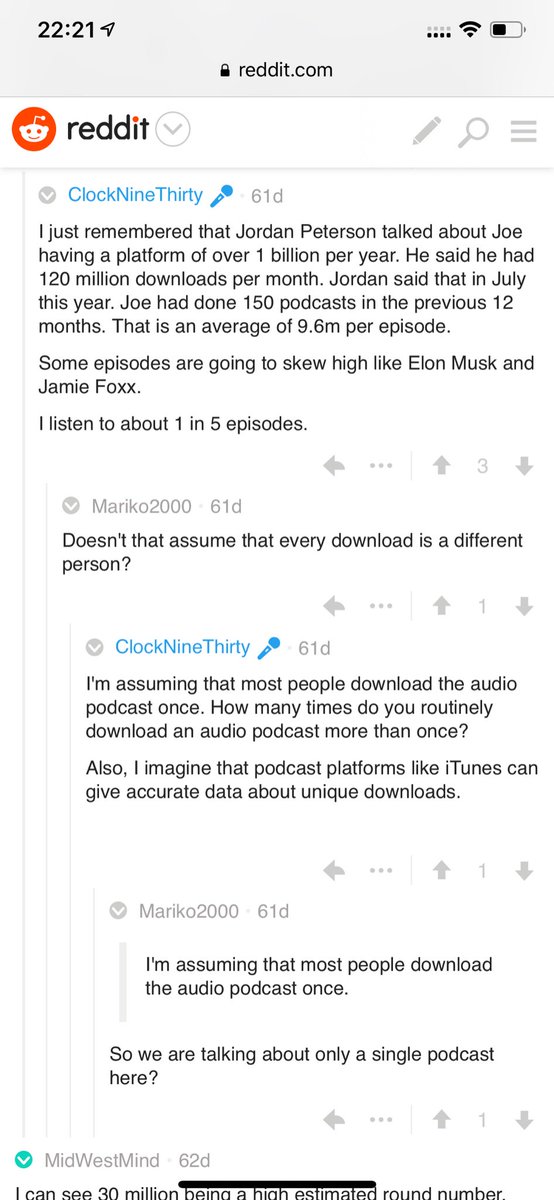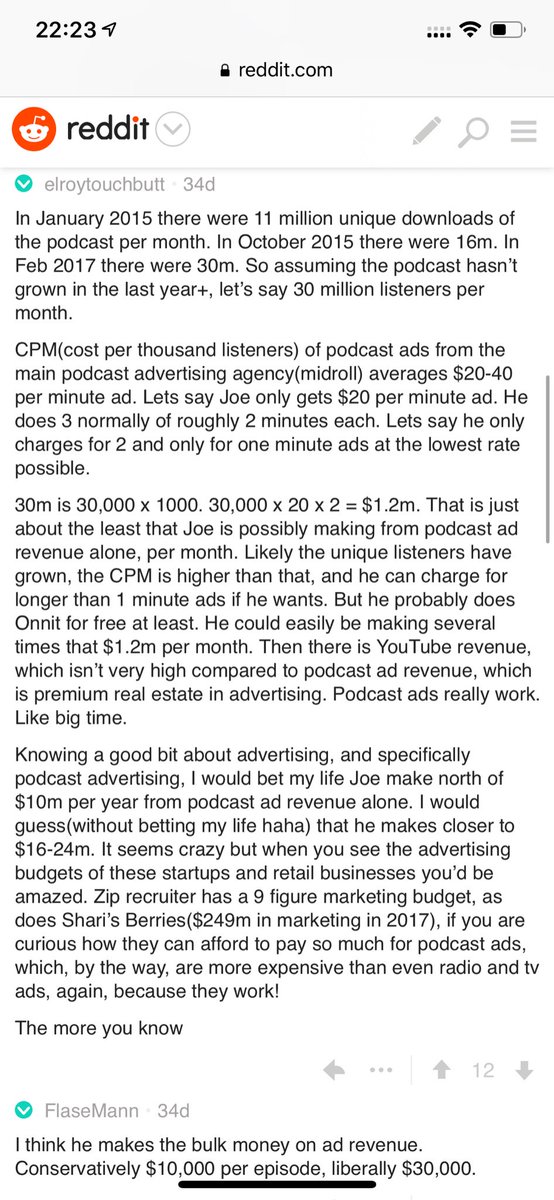When we put a high multiple to sales, the most important thing to worry about is - what could disrupt those cash flows. A lower multiple to sales (like a 1x or 2x) justifies Yo-Yo cyclicality and 10x sales implies relatively stable gross margins, cash flow and business economics.
It's amazing \U0001f60a 25% NP
— Avinash (@Aviral_Bharat) February 17, 2022
$8b revenue
$2b Profit
$92b MCap
At 11 times revenue, it seems to be cheap compared to\U0001f609
More from Conviction | Patience
@connectgurmeet Real estate - unseen exposure
Playing real estate and home improvement structural story in \U0001f1ee\U0001f1f3 via a focused proxy consumption \U0001f9fa
— Conviction | Patience (@unseenvalue) January 10, 2020
1. Asian Paints
2. Pidilite
3. SHIL (Hindware portfolio)
4. Fragrance SpecChem (Kelkar & Fairchem)
Consumption | Proxy Consumption
More from Valuation
You May Also Like
Joe Rogan's podcast is now is listened to 1.5+ billion times per year at around $50-100M/year revenue.
Independent and 100% owned by Joe, no networks, no middle men and a 100M+ people audience.
👏
https://t.co/RywAiBxA3s
Joe is the #1 / #2 podcast (depends per week) of all podcasts
120 million plays per month source https://t.co/k7L1LfDdcM

https://t.co/aGcYnVDpMu

Independent and 100% owned by Joe, no networks, no middle men and a 100M+ people audience.
👏
https://t.co/RywAiBxA3s
Joe is the #1 / #2 podcast (depends per week) of all podcasts
120 million plays per month source https://t.co/k7L1LfDdcM

https://t.co/aGcYnVDpMu











![Peter McCormack [Jan/3\u279e\u20bf \U0001f511\u220e]](https://pbs.twimg.com/profile_images/1524287442307723265/_59ITDbJ_normal.jpg)








